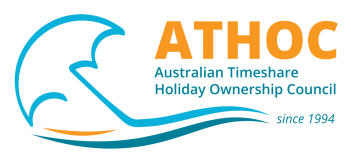What is a timeshare resort?
A ‘timeshare resort’ is just a property you can travel to as part of your Ownership/Membership. Sometimes, your Club will own the entirety of the property; other times, they’ll only have access to certain rooms.
You can find out which timeshare properties a Club offers by looking for pages called ‘Resorts’ or ‘Resort Directory’ on your Club’s website. The number, quality and location of resorts can be important if you want your holidays to have variety, so make sure you have a thorough look at a Club’s properties before becoming an Owner/Member.

Can I only stay at timeshare resorts my Club has access to?
The short answer: no, you’re not just limited to your Club’s timeshare properties.
Most Clubs in active sales are constantly looking to expand the number of resorts they own, but acquiring and renovating new properties can take a long time. Luckily, Owners/Members also have access to timeshare exchange programmes.
There are three major timeshare exchange companies:
Membership to these exchange programmes may or may not be included in your timeshare Ownership/Membership, so you may need to sign up separately to use them. They work exactly as you might expect: you trade your timeshare’s weeks or Points for a stay of equivalent value.
Because each of these programmes has access to dozens of different timeshare Clubs from around the world, you’ll have literally thousands of different properties to choose from. It doesn’t matter whether you want a ski extravaganza in Whistler, a sun-soaked vacation in the Caribbean, or a week of hiking in Tasmania – with timeshare exchange, you can make it happen.
What is a timeshare PDS?
A product disclosure statement (PDS) is an important document that every prospective Owner/Member should read. Because timeshare is classed as a financial product, the Responsible Entity is required to provide a PDS to you whenever they recommend or offer Ownerships/Memberships.
A PDS covers the fine details – how that particular Club works, who the Responsible Entity and Developer are, how the Club is governed, what fees you might have to pay, and so on. Think about it like an instruction manual. It might be boring to read, but it contains all the information you need to make the most of your timeshare Ownership/Membership.

Is timeshare risky?
It’s smart to be cautious about any financial investment. The last thing you want is to pour tens of thousands of dollars into something, only for it to collapse and take your money with it.
Luckily, timeshare Clubs have been developed to minimise the risk to Owners/Members as much as possible.
Remember how we talked about the Developer and the Club being two separate entities? The Developer is just a regular company, but the Club is set up using a Club-Trust structure, where a timeshare Trustee (sometimes known as a Custodian) protects the occupancy rights of the Owners/Members by holding Club property in trust.
If you’re confused, it’s okay – what that all means is that the Club is completely separate from the Developer’s financial activities, so, if the Developer suffers a financial collapse, the Club is safe. It uses its Owners/Members’ maintenance fees (we’ll talk about what those are in a minute) to maintain timeshare properties and keep everything running smoothly.
A Club can collapse, but the possibility of it happening is extremely low. As long as a Club’s management company budgets wisely, keeping enough aside to manage ongoing expenses, there is very little risk involved with buying timeshare.
It is important to acknowledge that while timeshare is legally classed as an investment product, it is a lifestyle investment in holidays for the future, and is not intended to provide financial gain. You should not expect to make money on your timeshare ownership.


















